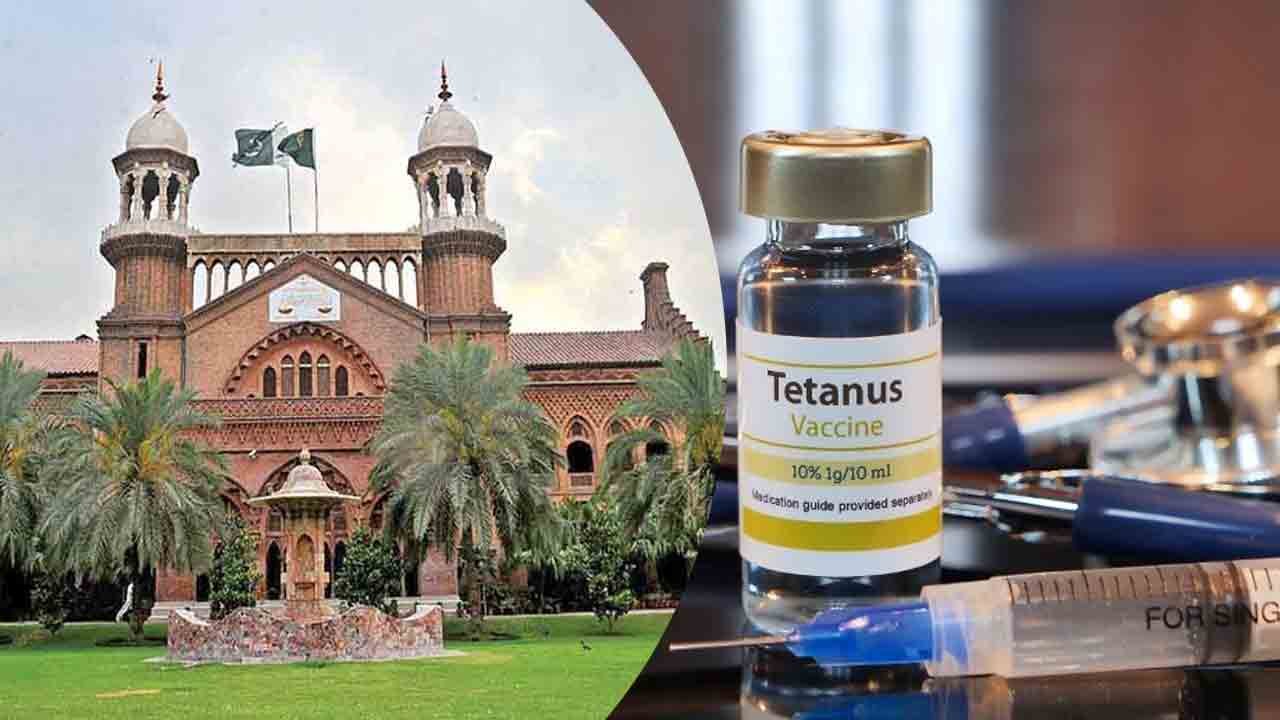Lahore High Court Justice Shahid Bilal Hasan recently presided over a petition filed by Advocate Rana Sikandar, highlighting the critical issue of the non-availability of anti-tetanus injections in government hospitals. The case sheds light on the broader issue of medical supply shortages and the impact on public health.
The Petitioner’s Argument
The petitioner, Rana Sikandar, presented his case to the court, emphasizing the unavailability of anti-tetanus injections in government hospitals. He recounted his personal experience, explaining that when he sought the tetanus injection at a government hospital, he was informed that the injections were out of stock. He further pointed out that private hospitals and pharmacies were selling the injection at an exorbitant price of 6,000 rupees, making it unaffordable for many people.
Legal Plea for Medical Supplies
Rana Sikandar’s lawyer argued that the government’s failure to provide essential medical supplies, such as the anti-tetanus injection, in public hospitals constitutes a serious lapse in the healthcare system. He requested the High Court to issue an order ensuring the availability of anti-tetanus injections in all government hospitals across the region. The petition underscored the critical need for accessible healthcare services and the state’s responsibility to ensure that life-saving medications are readily available to the public, especially in government-run facilities.
Court’s Decision
After hearing the arguments, Justice Shahid Bilal Hasan acknowledged the gravity of the issue raised by the petitioner. Recognizing the importance of ensuring that essential medical supplies are available in government hospitals, the court decided to refer the petition to the Health Secretary. The court ordered the Health Secretary to address the matter in accordance with the law, ensuring that a solution is implemented to prevent such shortages in the future.
The court’s decision to refer the matter to the Health Secretary reflects an understanding that systemic issues within the healthcare supply chain need to be addressed at the administrative level. This move is aimed at prompting immediate action and ensuring that similar issues do not recur, thereby safeguarding public health.
Broader Implications for Public Health
The unavailability of anti-tetanus injections in government hospitals highlights a significant public health concern. Tetanus, a potentially life-threatening condition caused by bacteria entering the body through wounds, can be effectively prevented with timely vaccination. The high cost of the injection in private healthcare settings further exacerbates the issue, making it inaccessible to the economically disadvantaged segments of the population.
This case underscores the urgent need for robust healthcare infrastructure and efficient supply chain management within government hospitals. Ensuring the availability of essential medications and vaccines is crucial for preventing outbreaks of diseases and protecting public health. It also points to the need for better coordination between health departments and medical supply chains to avoid such shortages in the future.
The Lahore High Court’s directive to the Health Secretary to address the non-availability of anti-tetanus injections in government hospitals is a significant step towards improving public health services. By bringing this issue to the attention of the relevant authorities, the court has highlighted the need for immediate action to ensure that essential medical supplies are available to all citizens, particularly in government-run healthcare facilities.
This case serves as a reminder of the critical role that judicial oversight can play in addressing systemic issues within the healthcare system. It also emphasizes the importance of administrative accountability and the need for efficient management of healthcare resources to protect and promote public health. As the Health Secretary works on resolving this issue, it is hoped that a sustainable solution will be found, ensuring that essential medical supplies are consistently available in government hospitals across the region.



